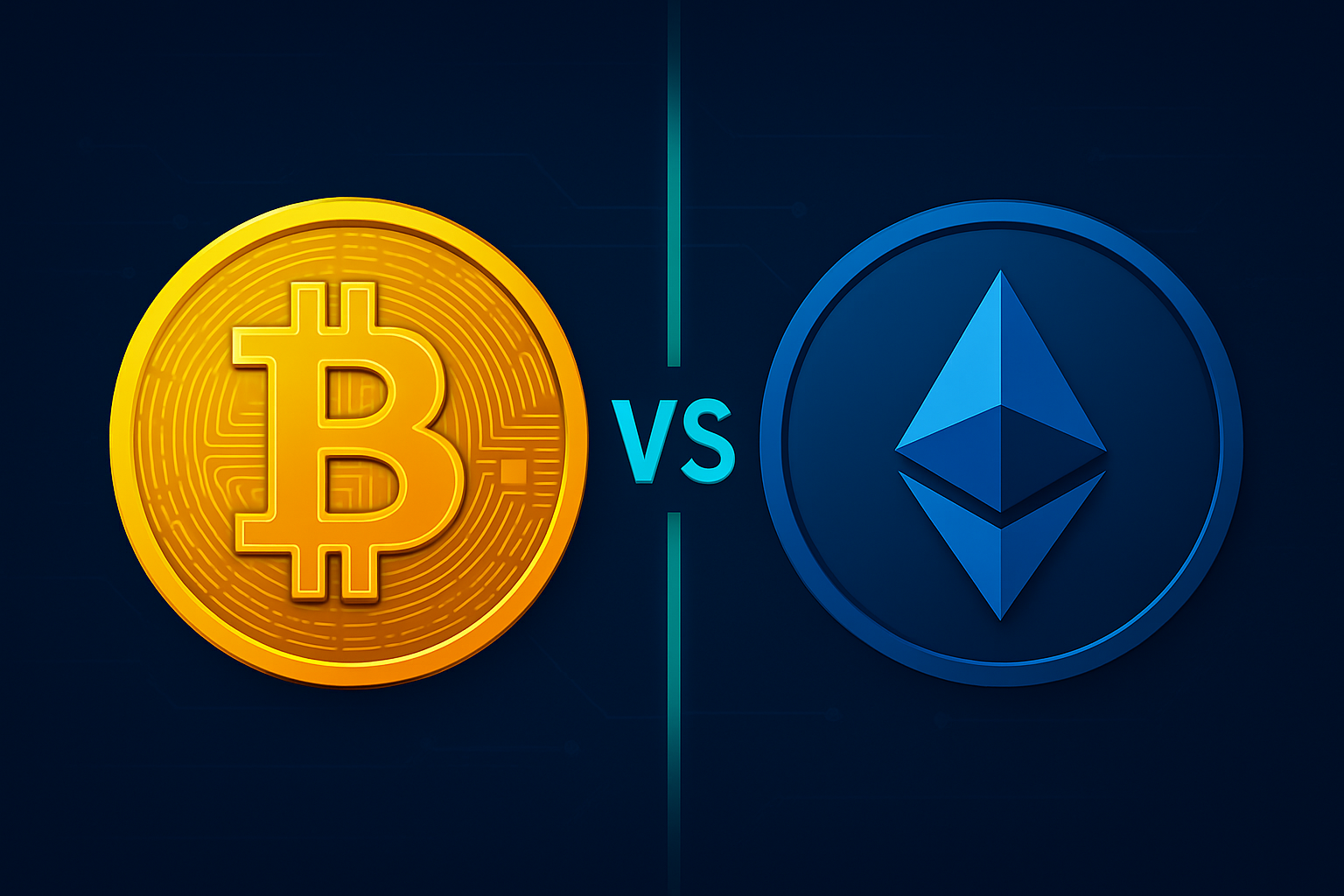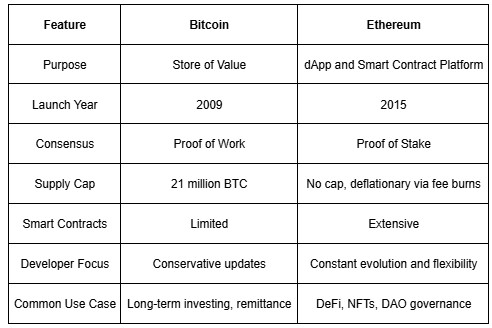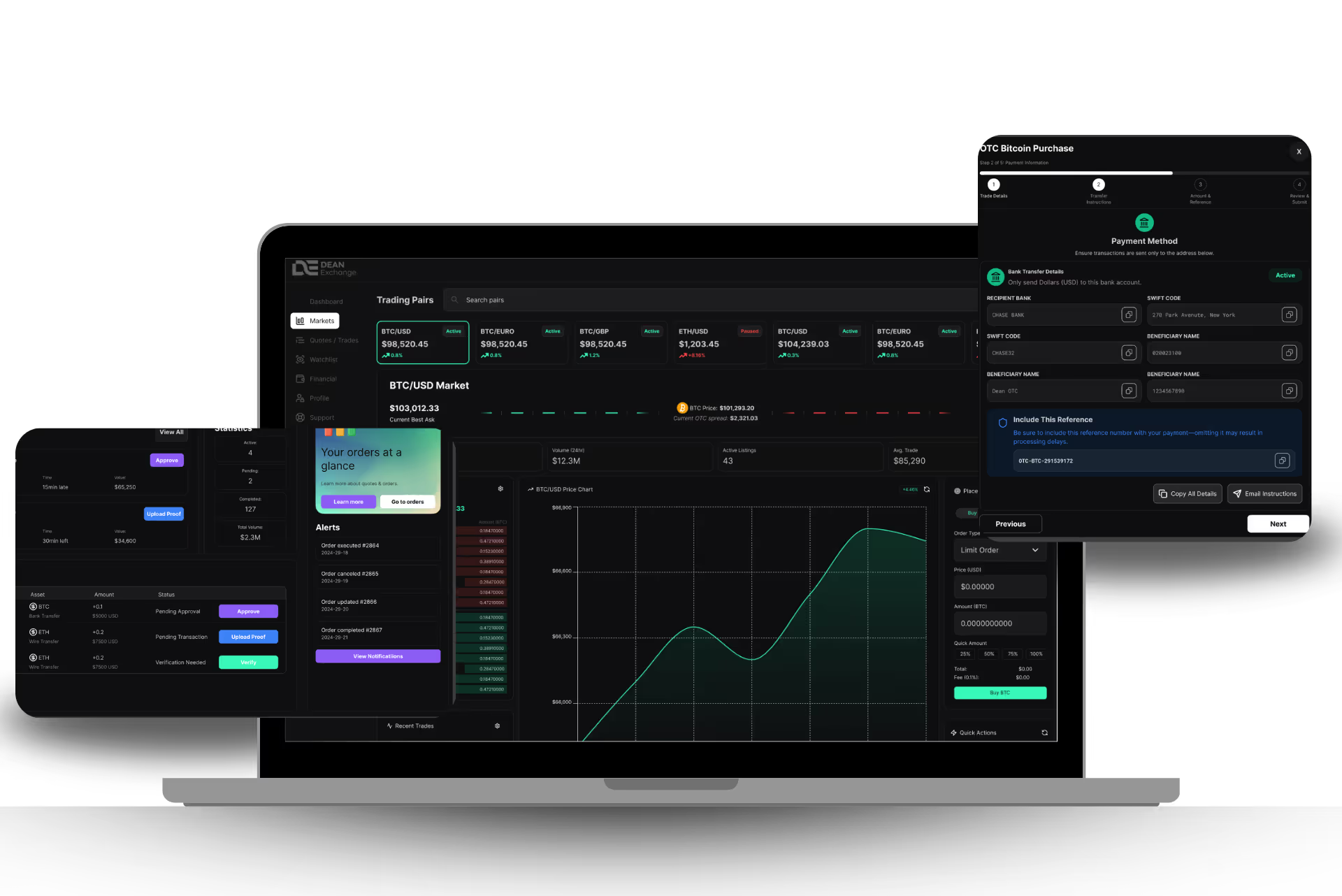By the
This is some text inside of a div block.
This is some text inside of a div block.
•
5
min read

Two Titans of the Blockchain World Bitcoin and Ethereum are two of the most well-known cryptocurrencies in the world, but they serve vastly different purposes. Bitcoin, launched in 2009 by the mysterious Satoshi Nakamoto, was the first cryptocurrency and is often referred to as "digital gold." Ethereum, launched in 2015 by Vitalik Buterin and a team of developers, introduced the concept of programmable smart contracts, enabling an entirely new generation of decentralized applications.
While both projects are built on blockchain technology and share a decentralized ethos, the ways they function, their use cases, and their roles in the broader crypto ecosystem are fundamentally distinct. Understanding their differences is critical for investors, developers, and anyone exploring blockchain technology.
Bitcoin: Digital Gold and Store of Value Bitcoin was created as a decentralized digital currency intended to function without the need for a central authority. Its fixed supply of 21 million coins, secured by a Proof of Work (PoW) consensus mechanism, has earned it a reputation as a hedge against inflation and a store of value—similar to gold.
Bitcoin's network is highly secure but limited in functionality. Its scripting language is intentionally restrictive to maintain simplicity and security. Bitcoin's primary utility lies in peer-to-peer transactions and long-term holding.
Ethereum: Smart Contracts and the Web3 Backbone Ethereum introduced a new paradigm in blockchain utility with its support for smart contracts—self-executing agreements with logic coded directly into the blockchain. This innovation has enabled decentralized finance (DeFi), non-fungible tokens (NFTs), DAOs, and a broad ecosystem of decentralized apps (dApps).
Ethereum originally used Proof of Work but has since transitioned to Proof of Stake (PoS) via Ethereum 2.0, significantly reducing energy consumption. Unlike Bitcoin's fixed supply, Ethereum has a dynamic supply model with mechanisms to burn fees (EIP-1559), creating deflationary pressure.
Key Differences at a Glance

Investment Perspectives From an investor's point of view, Bitcoin and Ethereum cater to different philosophies. Bitcoin is generally viewed as a long-term, stable store of value, appealing to those looking to preserve wealth. It's often compared to digital gold.
Ethereum, on the other hand, provides exposure to Web3 innovation. It is more volatile but supports the infrastructure of decentralized apps, which could represent significant future value. Investors in ETH often believe in the growth of decentralized finance, token economies, and blockchain-based applications.
Bitcoin and Ethereum are not rivals—they’re complementary pillars of the cryptocurrency ecosystem. Bitcoin excels as a reliable, deflationary store of value. Ethereum shines as the go-to infrastructure for innovation in decentralized technology.
Choosing between them doesn’t have to be binary. Understanding their unique roles can help you build a diversified, knowledge-driven portfolio. To dive deeper into crypto, enroll in Dean Exchange courses and turn curiosity into confidence.


Join our newsletter for exclusive insights, breaking crypto trends, and learning opportunities—delivered straight to your inbox.